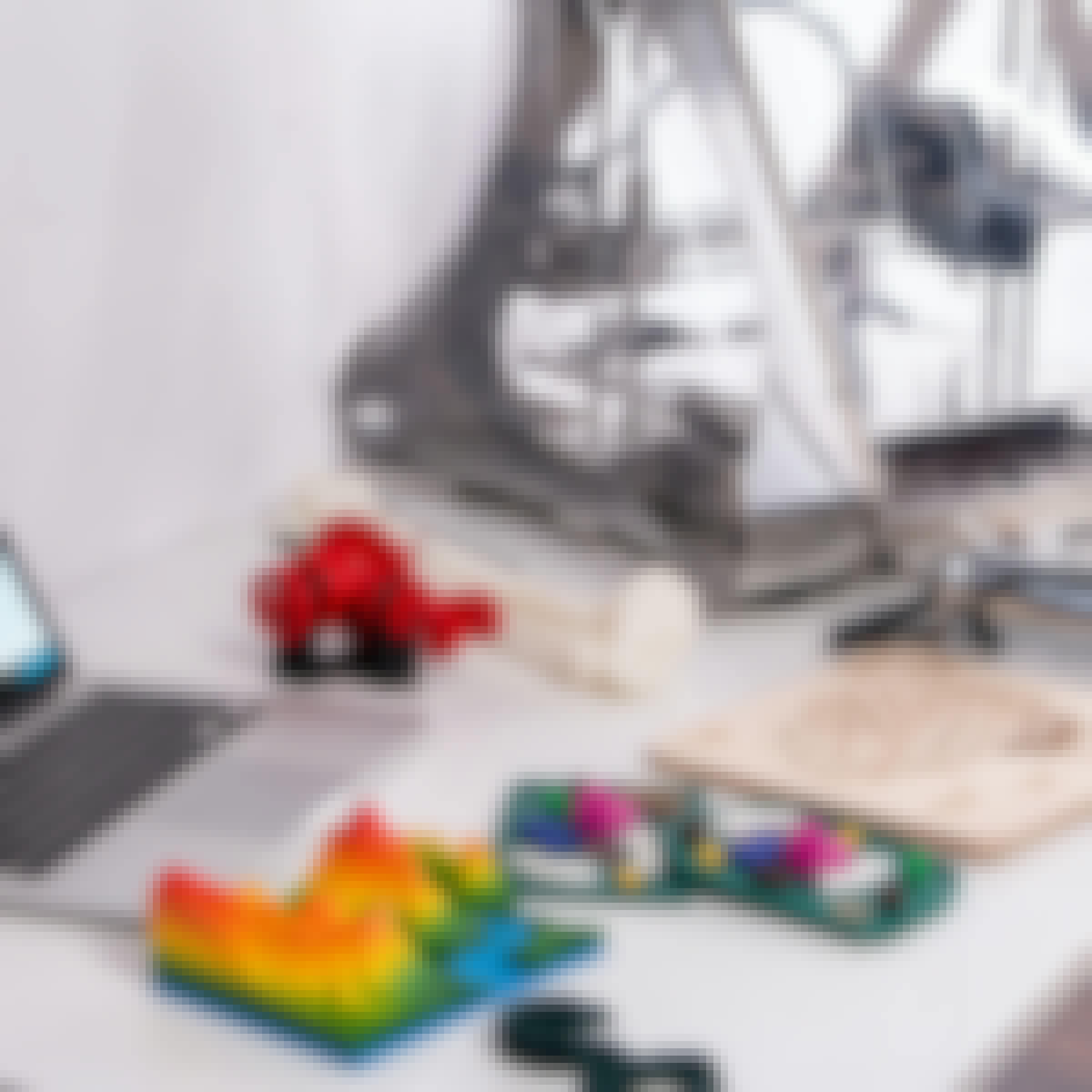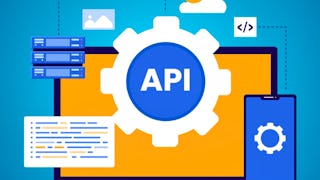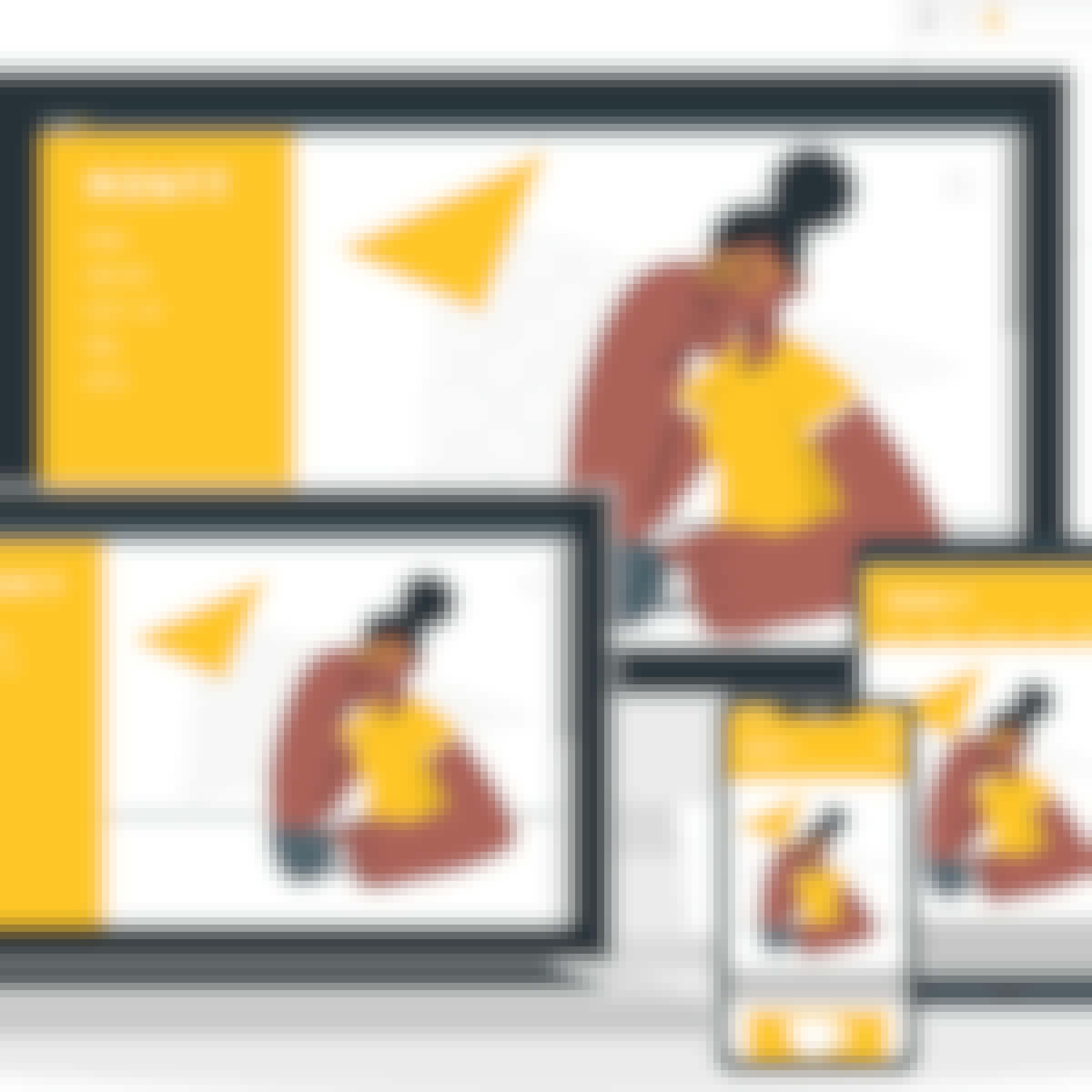- Browse
- Industrial Design
Results for "industrial design"
 Status: PreviewPreviewP
Status: PreviewPreviewPPontificia Universidad Católica del Perú
Skills you'll gain: 3D Modeling, Manufacturing Processes, Mechanical Design, Prototyping, Design Software, Materials science, Simulation and Simulation Software
4.8·Rating, 4.8 out of 5 stars68 reviewsBeginner · Course · 1 - 4 Weeks

Skills you'll gain: Canva (Software), Logo Design, Graphic Design, Graphic and Visual Design, Color Theory, Creative Design, User Accounts, Digital Marketing
4.1·Rating, 4.1 out of 5 stars13 reviewsBeginner · Guided Project · Less Than 2 Hours

Skills you'll gain: Animations, Canva (Software), Instagram, Social Media, Facebook, Social Media Content, Content Creation, Social Media Management, Social Media Marketing, Marketing Materials, Design, Graphic Design, Marketing
4.5·Rating, 4.5 out of 5 stars47 reviewsBeginner · Guided Project · Less Than 2 Hours
 Status: PreviewPreviewS
Status: PreviewPreviewSStarweaver
Skills you'll gain: Team Management, Team Leadership, Team Performance Management, Team Building, Teamwork, Team Motivation, People Management, Leadership and Management, Conflict Management, Leadership, Collaboration, Diversity and Inclusion, Talent Management, Talent Recruitment, Employee Engagement, Performance Appraisal, Communication Strategies, Communication
4.7·Rating, 4.7 out of 5 stars65 reviewsBeginner · Course · 1 - 4 Weeks
 Status: PreviewPreviewE
Status: PreviewPreviewEEdureka
Skills you'll gain: PySpark, Apache Spark, Data Management, Distributed Computing, Apache Hadoop, Data Processing, Data Analysis, Exploratory Data Analysis, Python Programming, Scalability
3.7·Rating, 3.7 out of 5 stars48 reviewsBeginner · Course · 1 - 4 Weeks
 Status: Free TrialFree TrialA
Status: Free TrialFree TrialAArizona State University
Skills you'll gain: Parent Communication, Student Engagement, Community Outreach, Teaching, Cultural Diversity, Instructional Strategies, Cultural Sensitivity, Case Studies, Diversity Awareness, Collaboration
4.6·Rating, 4.6 out of 5 stars66 reviewsMixed · Course · 1 - 3 Months
 Status: FreeFreeU
Status: FreeFreeUUniversity of Washington
Skills you'll gain: Higher Education, Learning Strategies, Student Support and Services, Academic Advising, Time Management, Lifelong Learning, Personal Development, Planning, Collaboration, Resourcefulness, Decision Making, Adaptability, Relationship Building
4.6·Rating, 4.6 out of 5 stars505 reviewsMixed · Course · 1 - 3 Months
 Status: PreviewPreviewU
Status: PreviewPreviewUUniversity of Copenhagen
Skills you'll gain: Sustainable Development, Public Health, Health Policy, Social Determinants Of Health, Community Development, Sustainable Design, Climate Change Adaptation, Demography, Environmental Issue, Traffic Flow Optimization, Pollution Prevention, Environmental Engineering
4.8·Rating, 4.8 out of 5 stars170 reviewsMixed · Course · 1 - 3 Months
 Status: Free TrialFree TrialJ
Status: Free TrialFree TrialJJohns Hopkins University
Skills you'll gain: Integral Calculus, Calculus, Data Integration, Vector Databases, Mathematical Theory & Analysis, Advanced Mathematics, Applied Mathematics, Mathematical Modeling, Spatial Data Analysis, Geometry, Physics
4.7·Rating, 4.7 out of 5 stars46 reviewsIntermediate · Course · 1 - 4 Weeks
 Status: Free TrialFree Trial
Status: Free TrialFree TrialSkills you'll gain: Responsive Web Design, Bootstrap (Front-End Framework), Web Design, Cascading Style Sheets (CSS), Web Design and Development, Front-End Web Development, Mobile Development, Hypertext Markup Language (HTML)
4.1·Rating, 4.1 out of 5 stars27 reviewsBeginner · Course · 1 - 4 Weeks
 Status: Free TrialFree TrialL
Status: Free TrialFree TrialLL&T EduTech
Skills you'll gain: Construction Engineering, Civil Engineering, Construction, Building Services Engineering, Civil and Architectural Engineering, HVAC, Traffic Flow Optimization, Transportation Operations, Architecture and Construction, Electrical Systems, Public Works, Construction Management, Engineering Software, Engineering Design Process, Structural Analysis, Sustainable Engineering, Building Design, Land Development, Sustainable Development, Facility Management
4.1·Rating, 4.1 out of 5 stars14 reviewsAdvanced · Specialization · 3 - 6 Months
 Status: Free TrialFree TrialU
Status: Free TrialFree TrialUUniversity of Colorado System
Skills you'll gain: Sustainability Reporting, Organizational Change, Sustainable Design, Stakeholder Analysis, Environmental Social And Corporate Governance (ESG), Sustainable Business, Corporate Sustainability, Leadership and Management, Key Performance Indicators (KPIs), Change Management, Stakeholder Management, Leadership, Product Lifecycle Management
4.8·Rating, 4.8 out of 5 stars106 reviewsBeginner · Course · 1 - 3 Months
In summary, here are 10 of our most popular industrial design courses
- Impresión 3D: Pontificia Universidad Católica del Perú
- Créer un logo professionnel avec Canva: Coursera
- Cómo crear historias para Instagram y Facebook usando Canva: Coursera
- Fundamentals of Effective Team Management: Starweaver
- Introduction to PySpark: Edureka
- Engaging ELLs and Their Families in the School and Community: Arizona State University
- U101: Understanding College and College Life: University of Washington
- Urbanisation and Health - Promoting Sustainable Solutions: University of Copenhagen
- Calculus through Data & Modelling: Vector Calculus: Johns Hopkins University
- Developing Responsive Web Pages Using HTML5 and CSS3: NIIT










